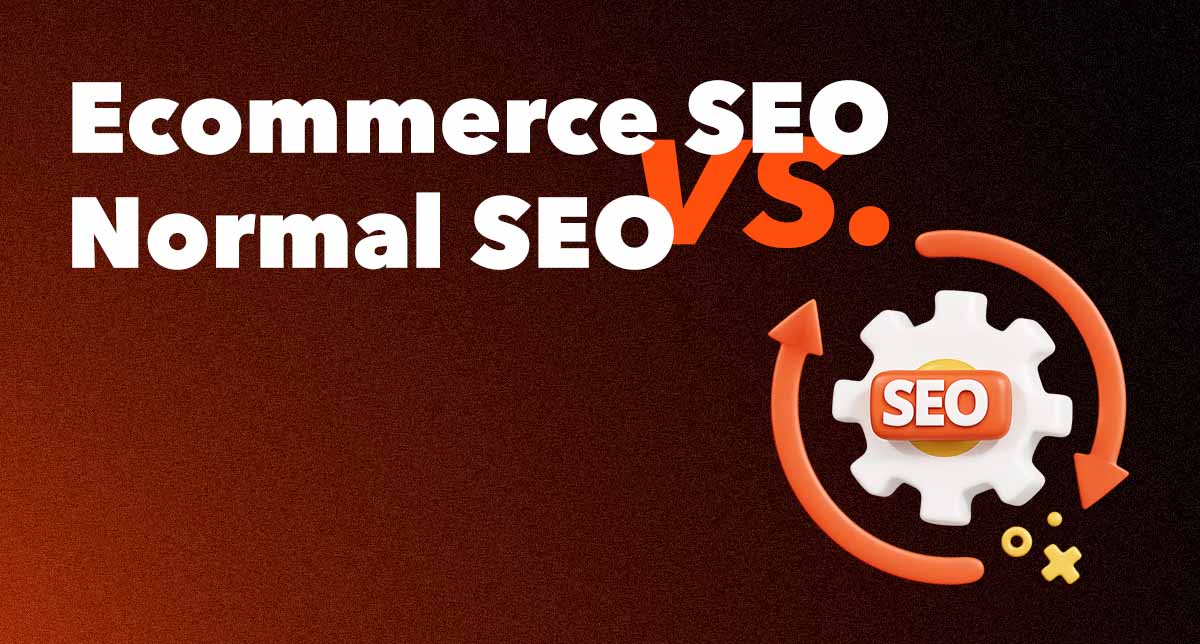As a business owner in the UAE, you know that SEO is crucial for attracting more visitors to your website. But here's something many overlook: there’s a big difference between e-commerce SEO vs. Traditional SEO, and understanding that difference can make all the difference to your bottom line. When you're running an online store, your SEO needs are far more specific than just general website optimization. The right approach can help you attract the right customers, boost your sales, and build stronger relationships with your audience. So, how do you decide which SEO strategy works best for your business? Let’s dive into how e-commerce SEO vs. Traditional SEO affects your online presence and how a tailored approach can transform your traffic into real results.
E-commerce SEO emphasizes optimizing product pages, product descriptions, reviews, and targeting buying-intent keywords. It’s all about leading the customer down the sales funnel. On the other hand, normal SEO is often centered on creating valuable, informative content, like blog posts or service pages, to engage and educate potential customers without a direct sales focus. This distinction is just the tip of the iceberg, and if you're interested in learning more about what makes e-commerce SEO unique, it might be worth checking out our post on What Is E-Commerce SEO?


How is eCommerce SEO Different from Normal SEO?
As a business owner in the UAE, you know that SEO is crucial for attracting more visitors to your website. But here's something many overlook: there’s a big difference between e-commerce SEO vs. Traditional SEO, and understanding that difference can make all the difference to your bottom line. When you're running an online store, your SEO needs are far more specific than just general website optimization. The right approach can help you attract the right customers, boost your sales, and build stronger relationships with your audience. So, how do you decide which SEO strategy works best for your business? Understanding how eCommerce SEO is different from normal SEO can be the first step toward choosing a strategy that delivers results. Let’s dive into how e-commerce SEO vs. traditional SEO affects your online presence and how a tailored approach can transform your traffic into real results.| Aspect | Ecommerce SEO | Normal SEO |
| Website Structure | Focuses on product pages and easy navigation to drive sales | Focuses on blog posts and static content |
| Page Complexity | More complex due to product variants and filters | Simpler with blog and service pages |
| User Behavior | Users are ready to purchase | Users may be seeking information |
| Ranking Factors | Focus on product descriptions and reviews | Focus on content quality and backlinks |
| Goal | Convert visitors into buyers | Drive traffic and improve visibility |
Ecommerce SEO vs. Traditional SEO: Similarities
While eCommerce SEO and traditional SEO may serve different goals, they share several core practices that contribute to successful search engine optimization. These include:- Keyword Research: Whether optimizing for a product or a blog post, finding the right keywords is essential for success.
- On-Page SEO: This includes optimizing meta tags, title tags, and URLs, and using proper heading structures.
- Content Quality: High-quality, engaging content is necessary for both types of SEO to attract and retain users.

Ecommerce SEO vs. Normal SEO Examples You Should Know
Let’s take a closer look at practical examples to understand how eCommerce SEO and normal SEO differ in real-world applications. If you’re looking for clear, relatable eCommerce SEO vs. normal SEO examples, think of the contrast between optimizing a product page and crafting a blog post; the differences in structure, intent, and keyword targeting couldn’t be more distinct.- Product Pages: These require specific SEO strategies like optimized product descriptions, high-quality images, and user-generated content like reviews and ratings.
- Blog Posts: For a blog, SEO efforts focus on providing valuable, informative content that can help the reader solve a problem or gain new insights. Here, the content is keyword-rich, often with a focus on user intent and engagement rather than a direct purchase.
What an SEO Agency Does Differently for Ecommerce Sites
When partnering with an SEO agency for your eCommerce site, you'll notice several advanced techniques that are specific to this type of SEO. The strategies go beyond the basics of traditional SEO and often include:- Automated Meta Tag Generation: This allows each product page to have unique meta descriptions and title tags, which are critical for search rankings.
- Schema Markup: This involves using structured data to highlight essential product details like price, availability, and ratings, making it easier for search engines to understand the content.
- Link Building for Ecommerce: On an eCommerce website, link building is often focused on product pages and category pages, enhancing their authority and search engine ranking.
- Comprehensive Data Analysis: An SEO agency will regularly analyze data from tools like Google Analytics and Google Search Console to monitor website performance and suggest actionable changes.

Why Most Ecommerce Sites Should Outsource SEO?
Managing eCommerce SEO can be a daunting task, especially with the complexity involved in optimizing product pages, handling inventory updates, and analyzing data. Here's why most businesses choose to outsource their eCommerce SEO to experts:- Cost-Effectiveness: While managing SEO in-house might seem like a cost-saving option, it can often lead to suboptimal results. Hiring professionals with experience in eCommerce SEO ensures that you get the best return on your investment.
- Complexity: Ecommerce SEO involves advanced strategies such as automated meta tags, product schema, and ongoing content optimization. Outsourcing ensures these tasks are handled efficiently.
- Scalability: As your business grows, your SEO needs evolve. An experienced SEO agency can adapt your strategy to meet new challenges and opportunities.
- Access to Tools: Professional agencies have access to high-end SEO tools that allow them to track rankings, analyze competitors, and make data-driven decisions for your eCommerce site.




